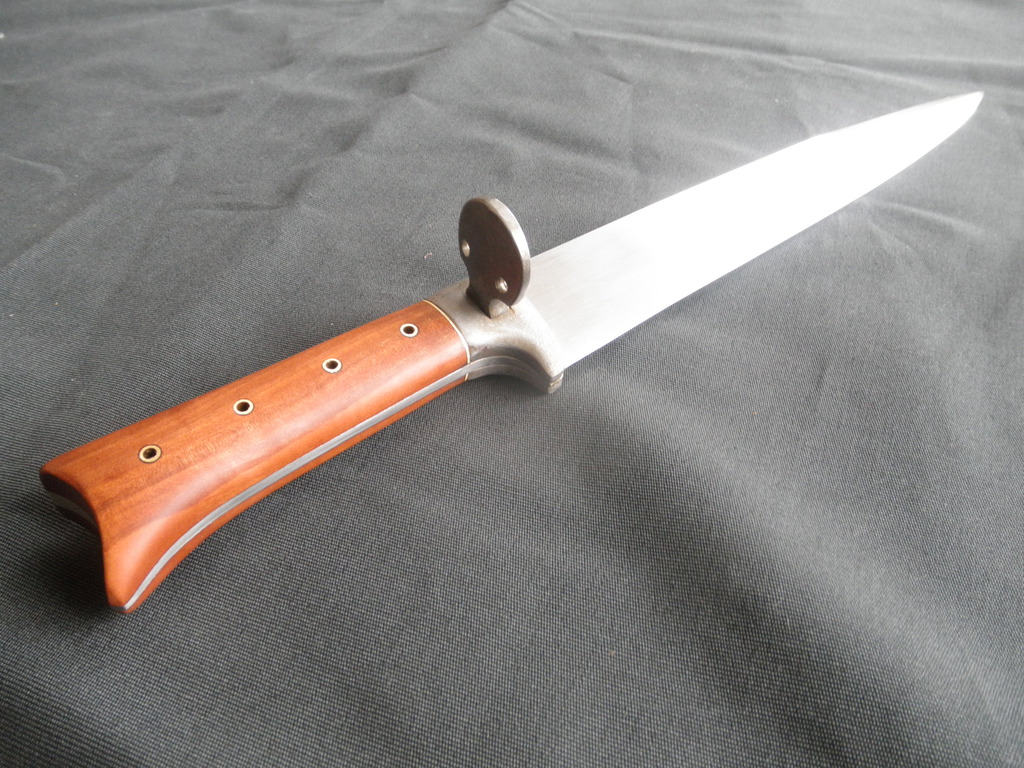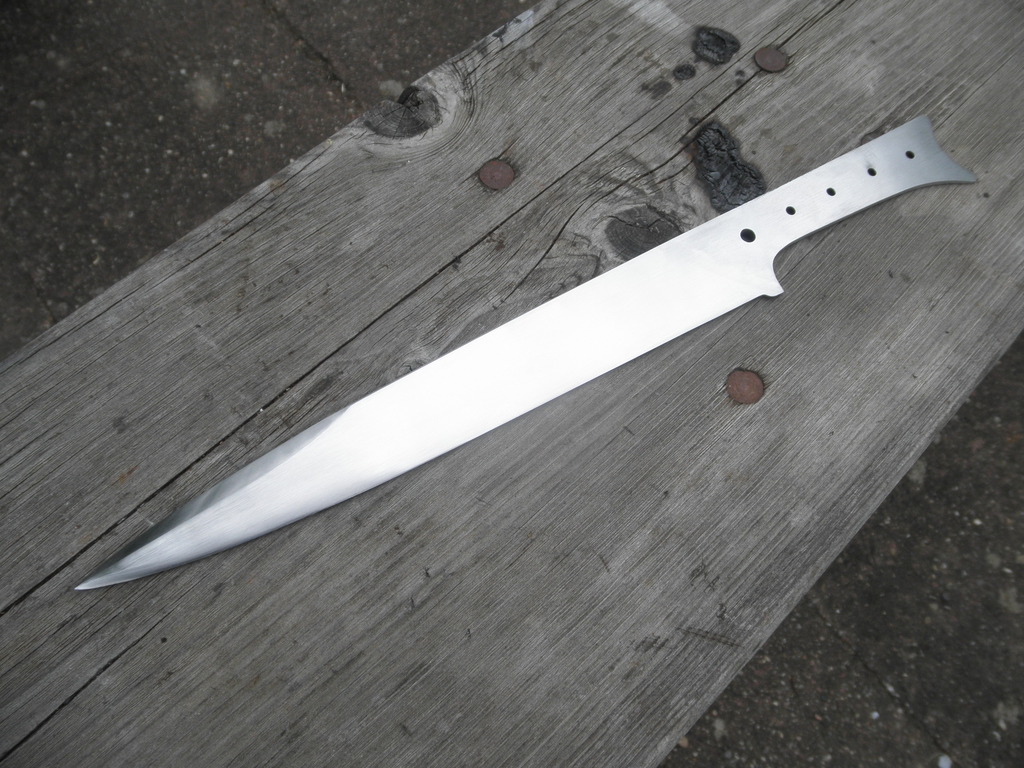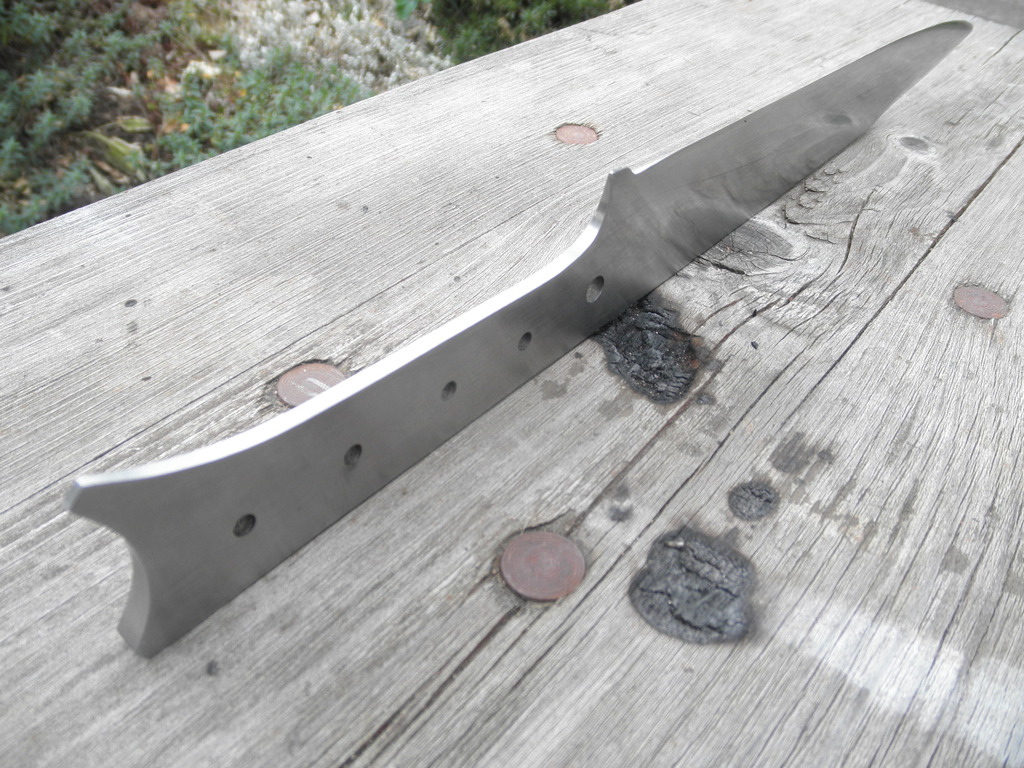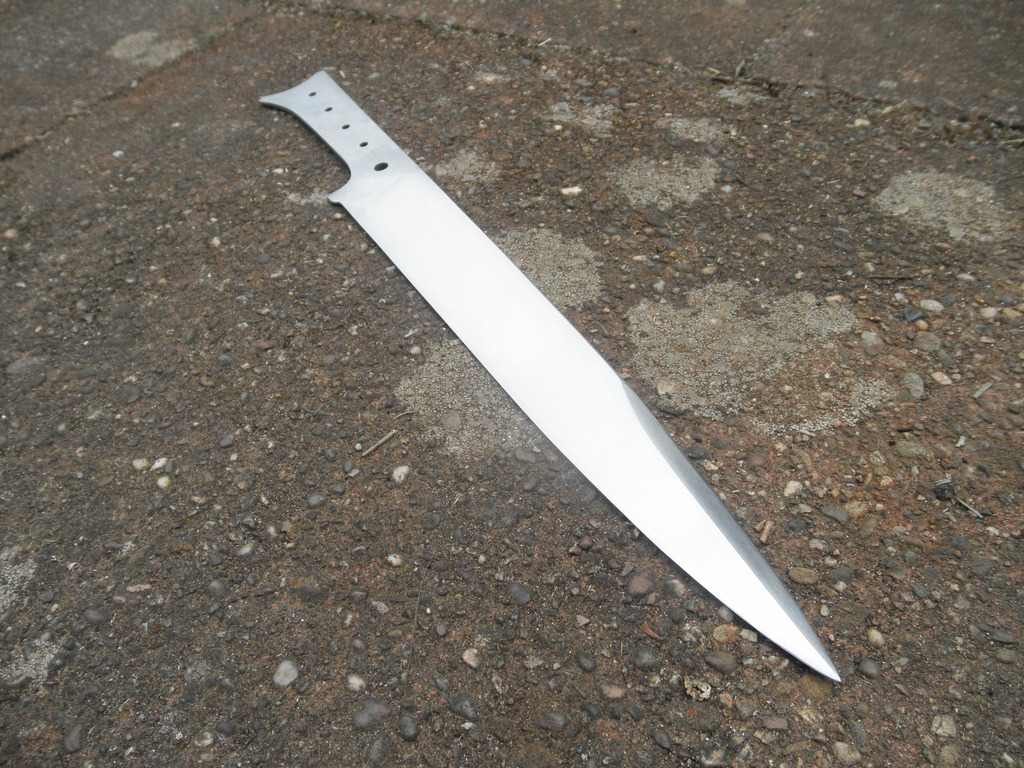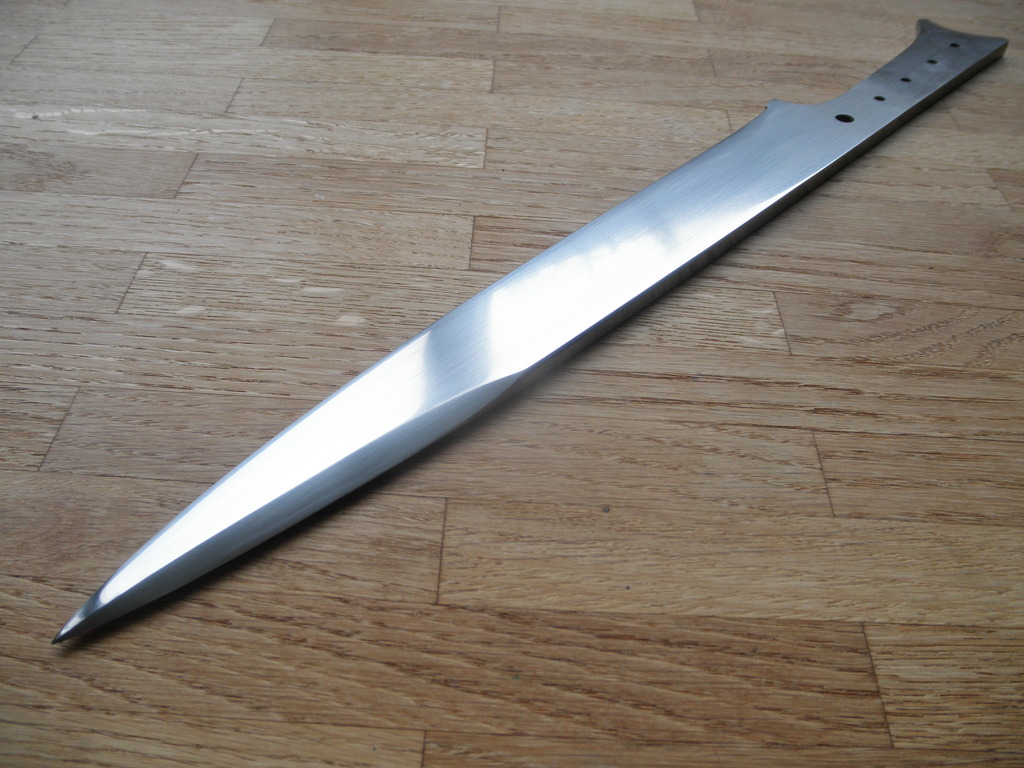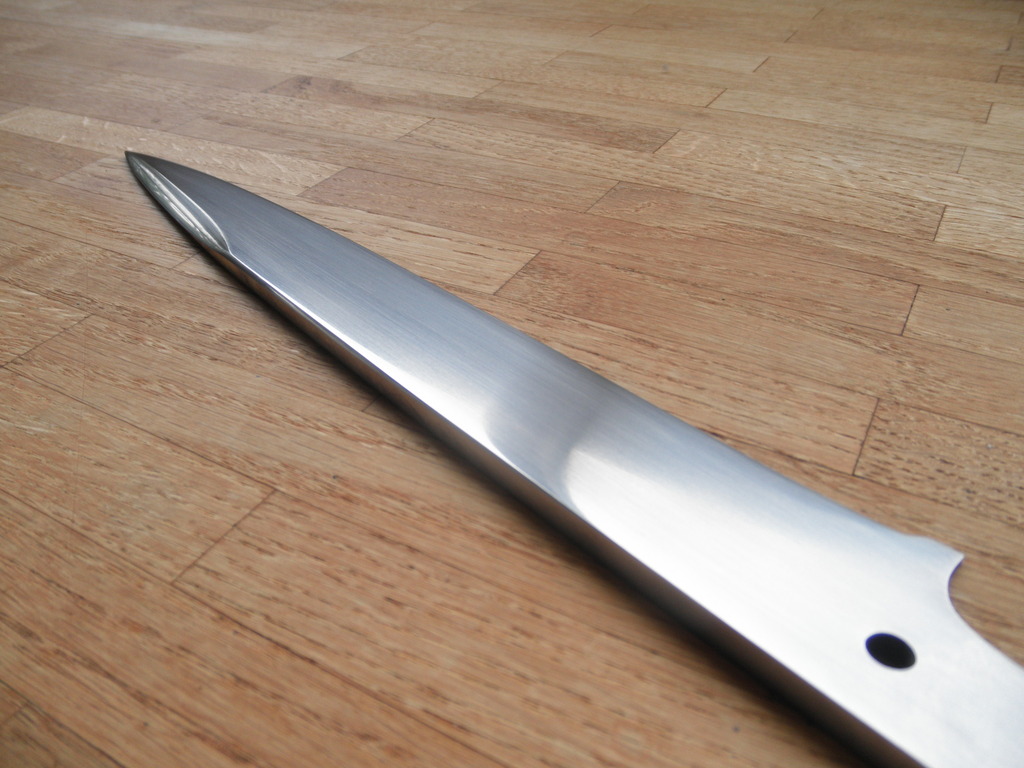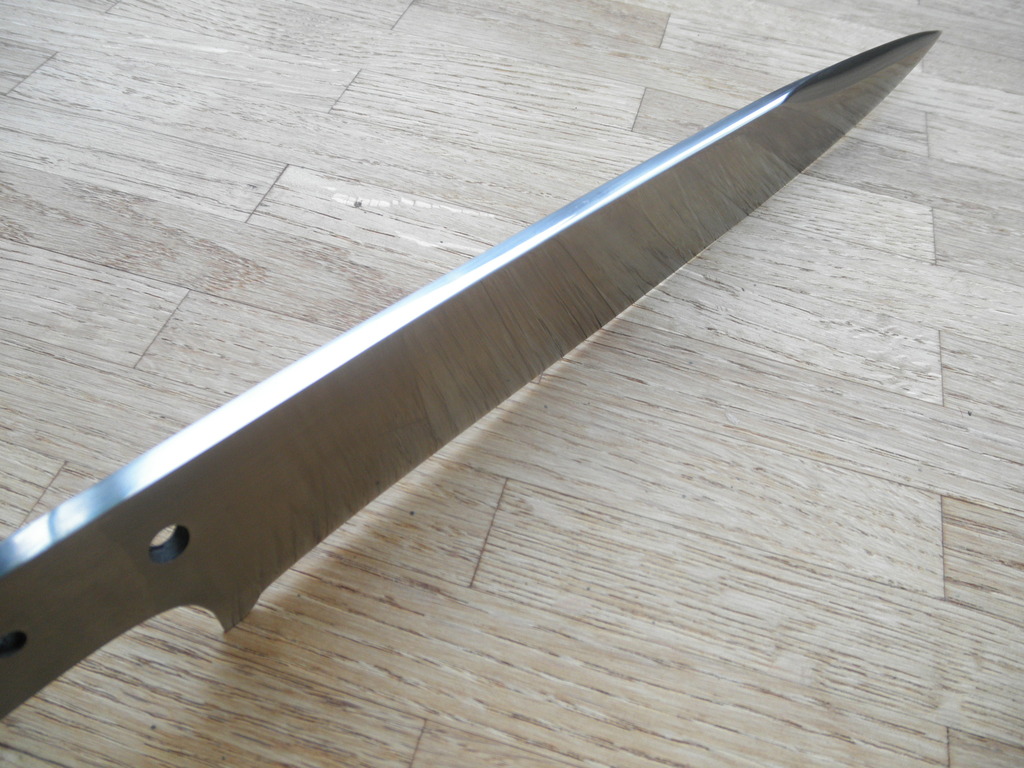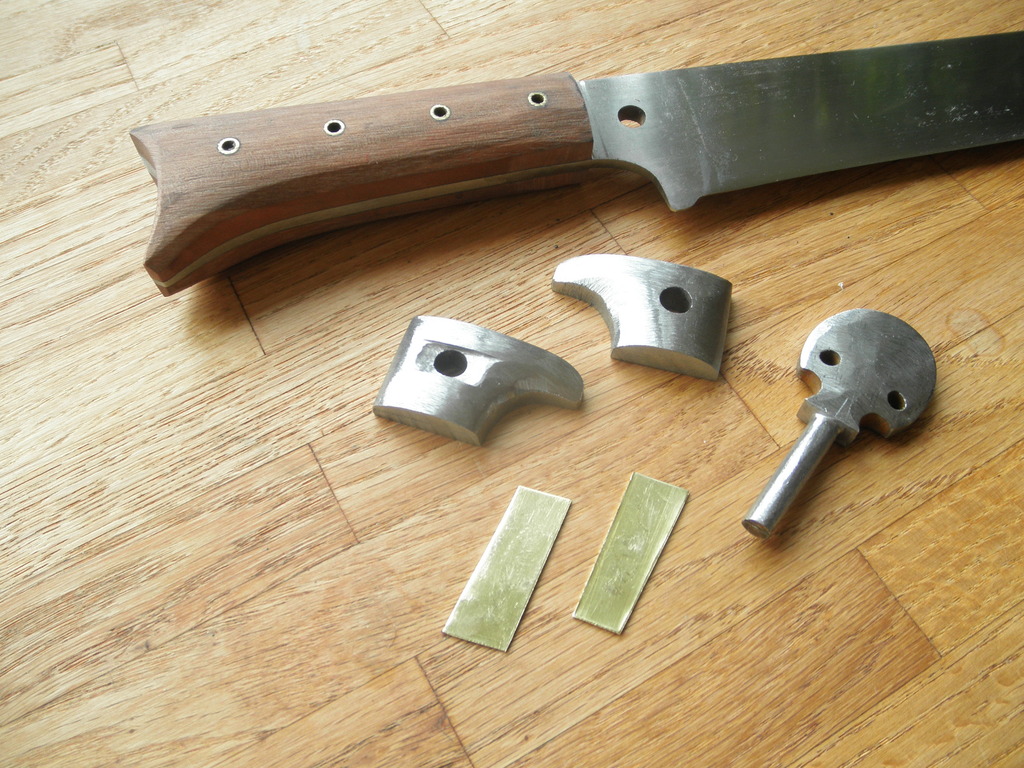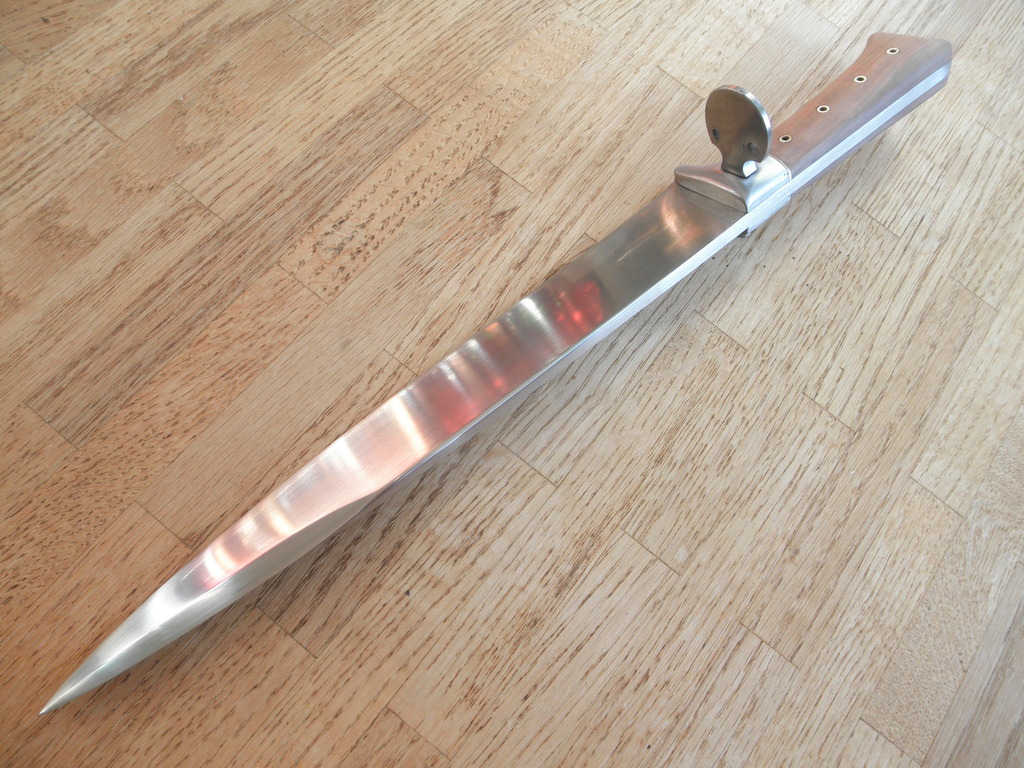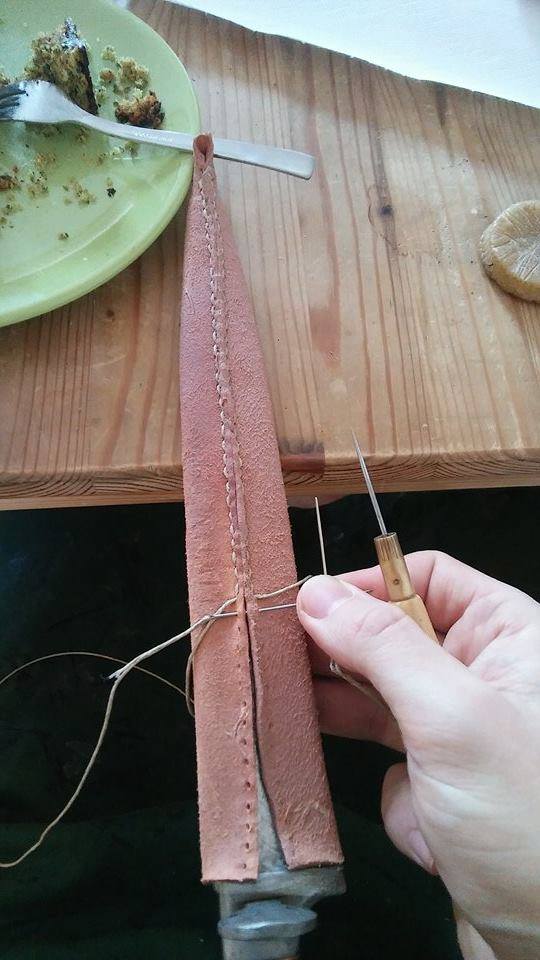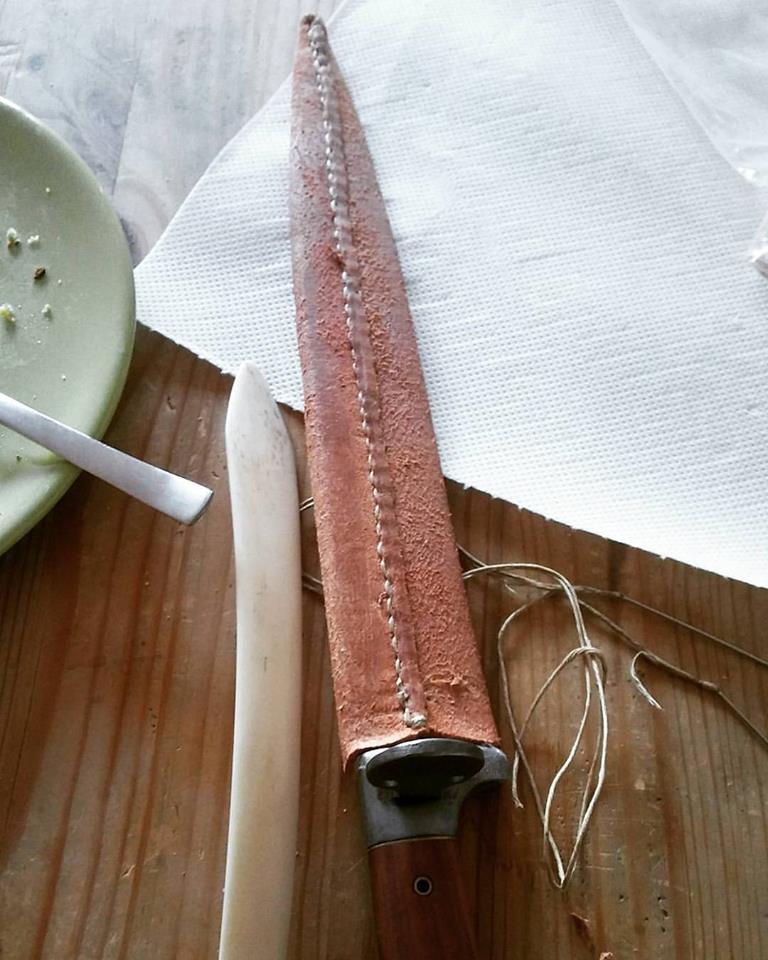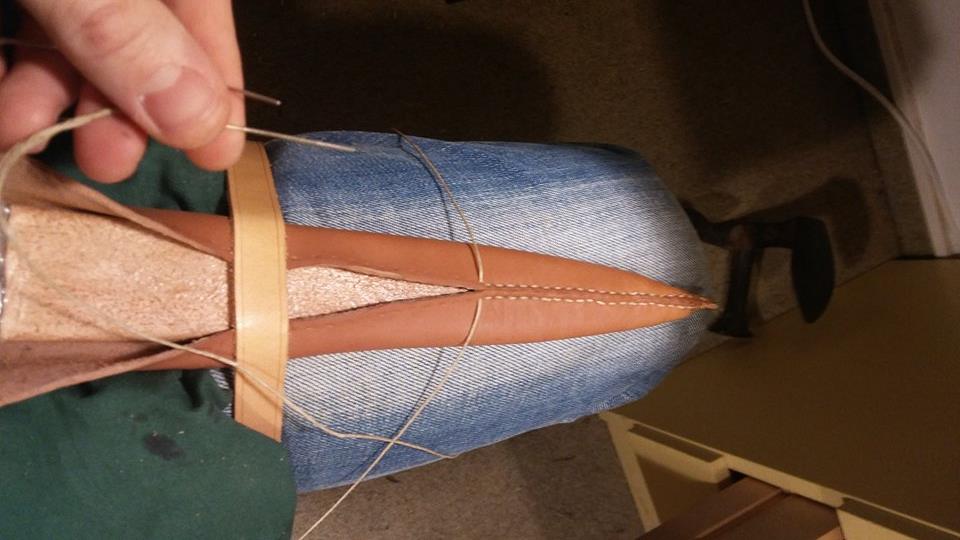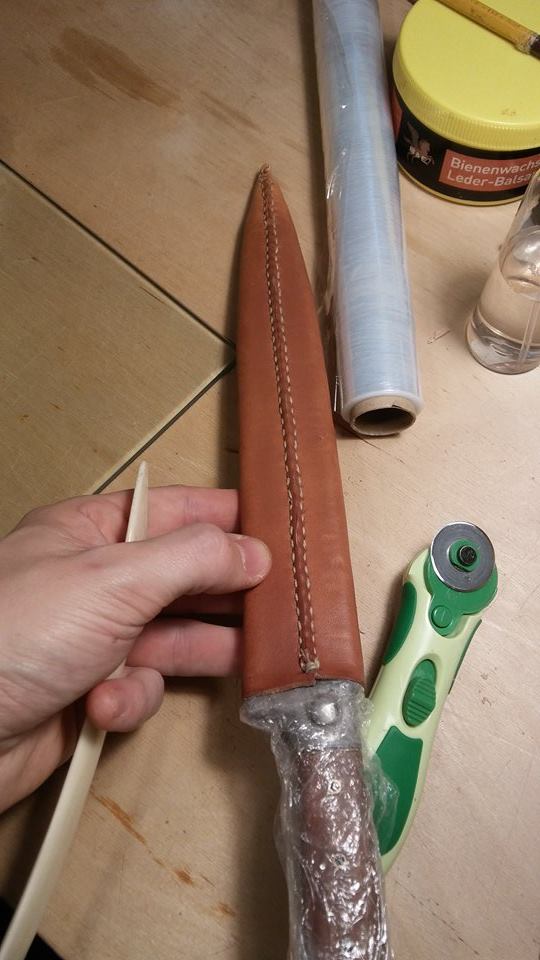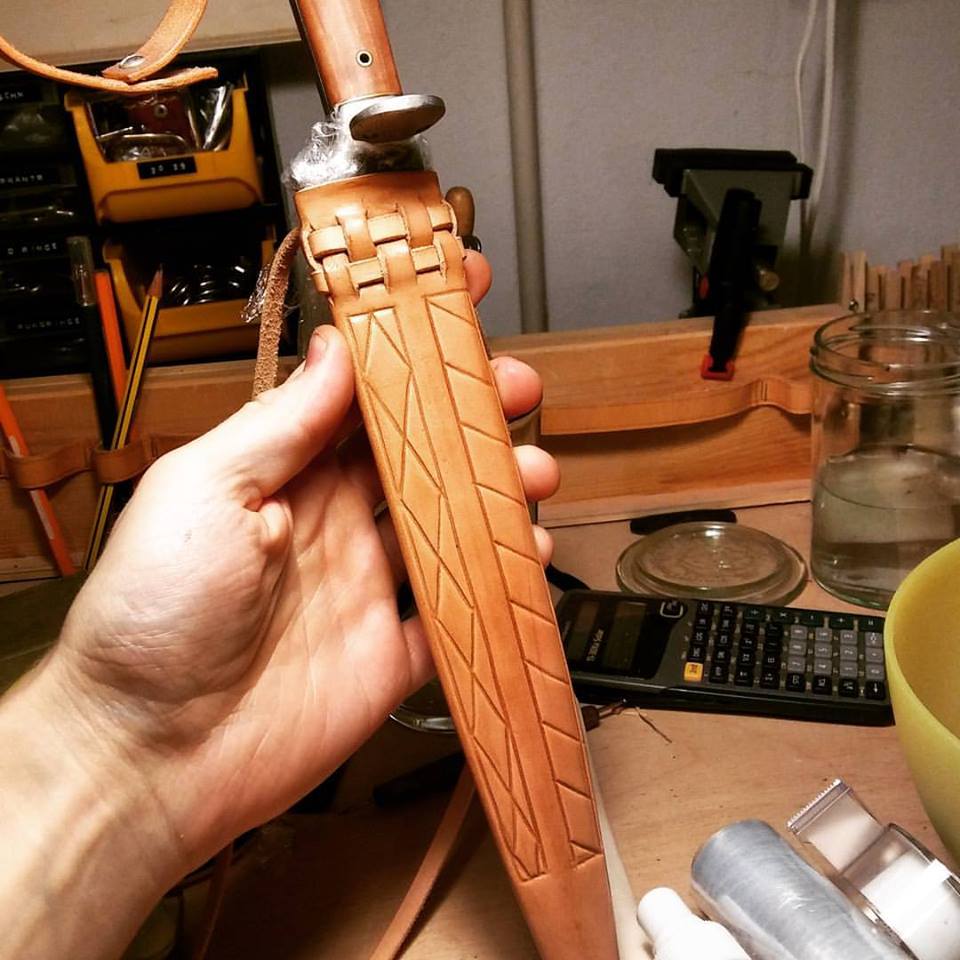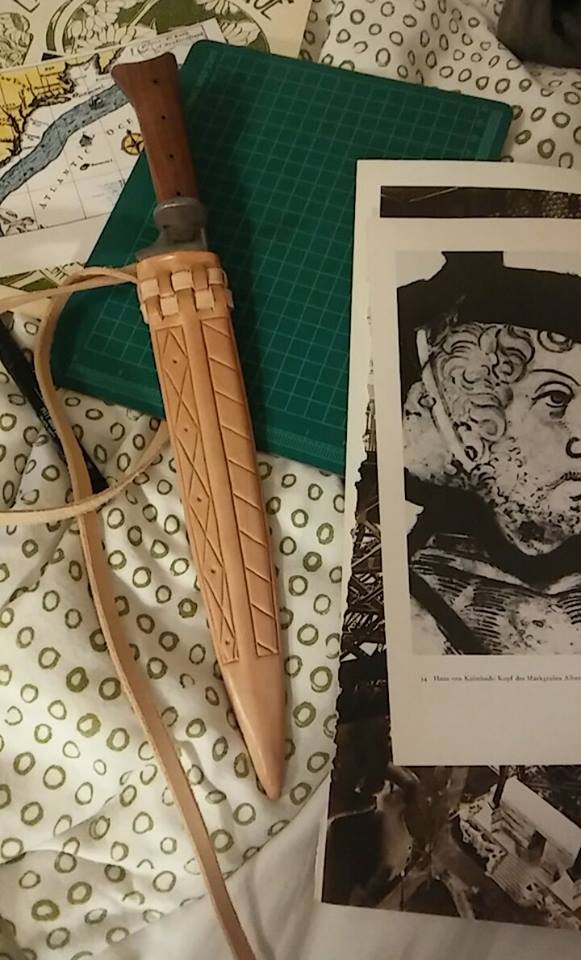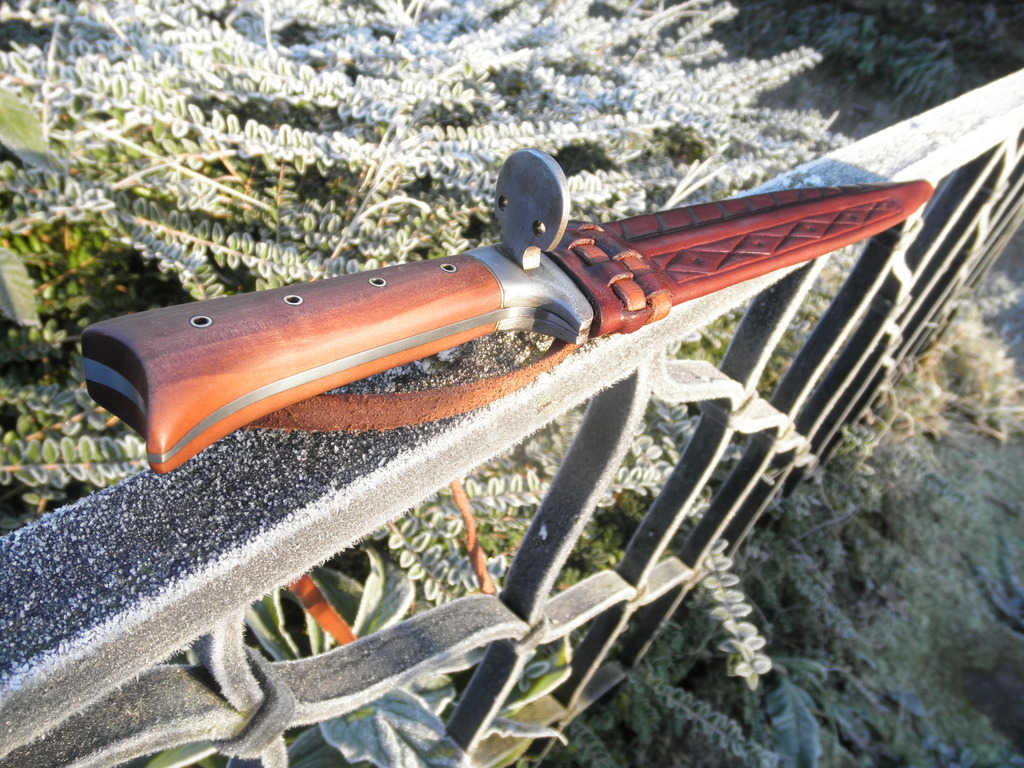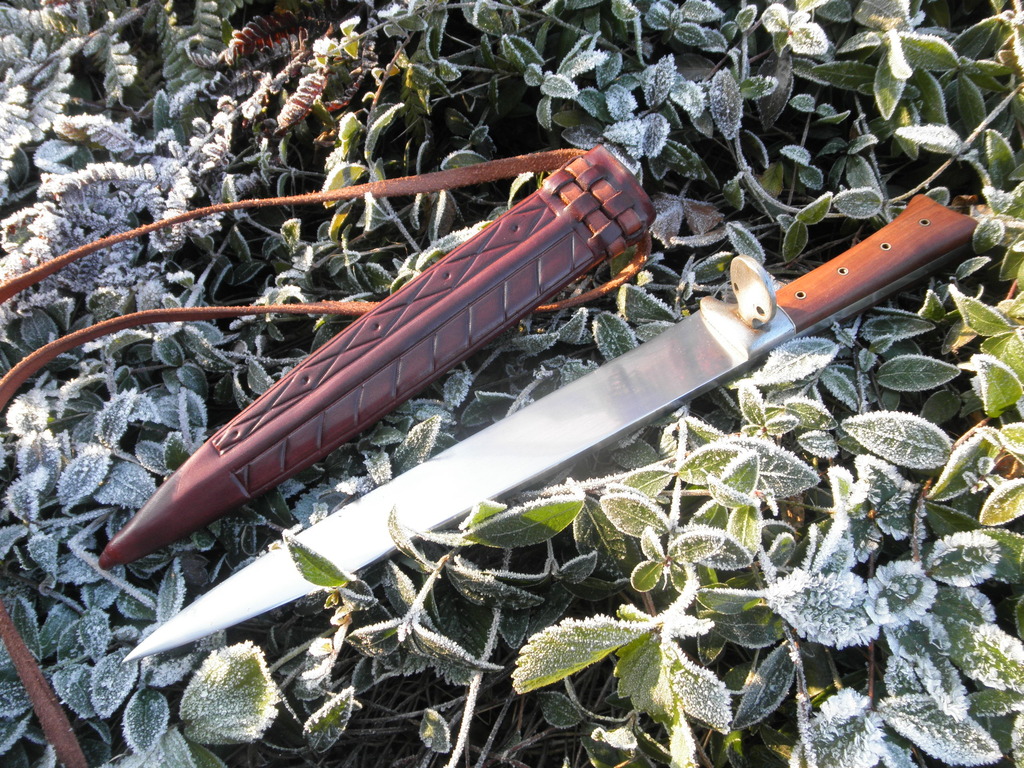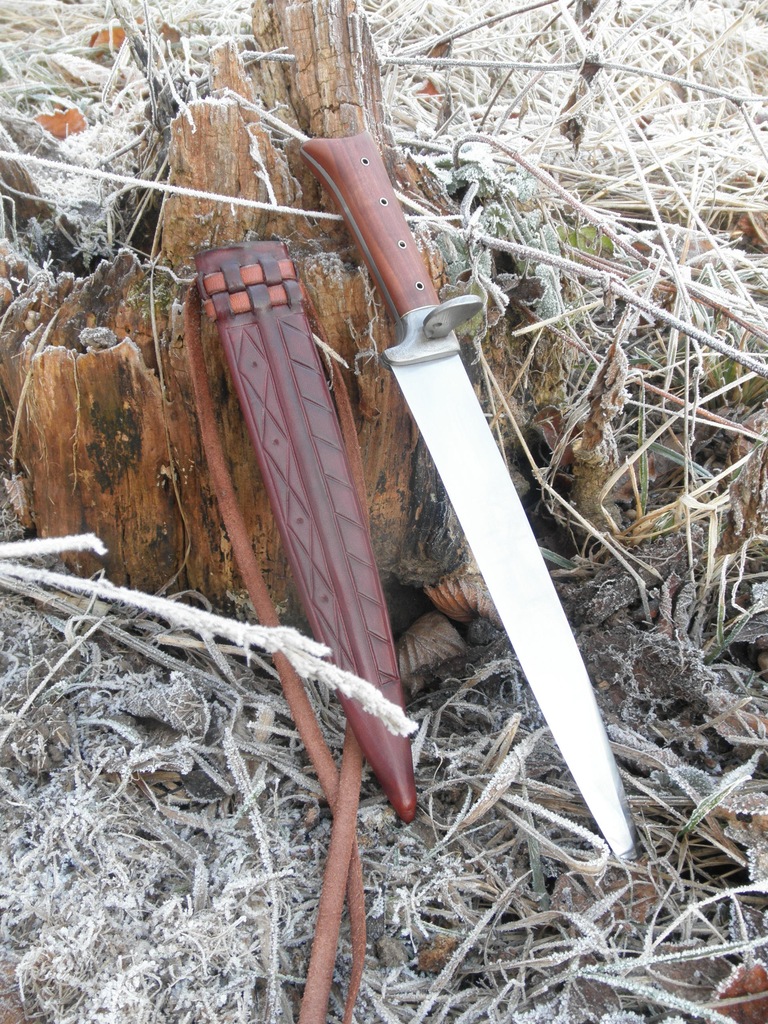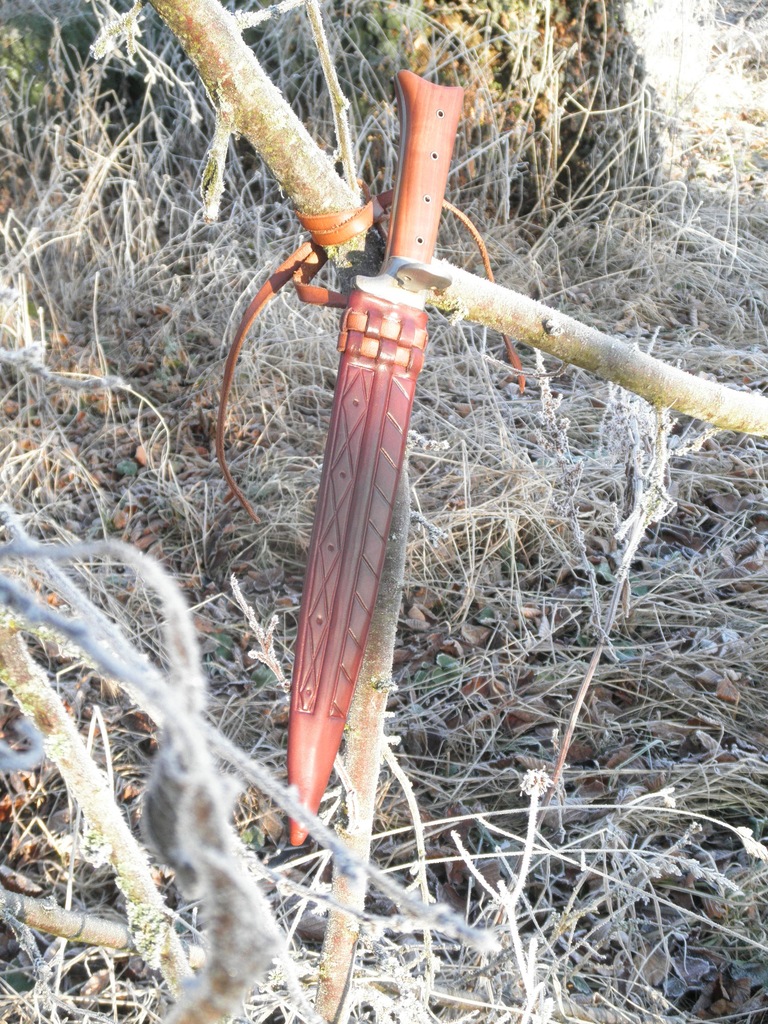Hi guys,
I‘d like to present to you the (almost) finished Rugger/Hauswehr. I still need to add my maker‘s mark but as my etching set-up is not in functioning order right now, that will have to wait a bit.
This type of blade was a typical EDC-weapon for Germanic late medieval/early renaissance period civilians and military personnel. It is not only a very effective close quarter weapon but can also be very handy as a tool. This specific piece is notably more geared towards martial usage though. In general, there is a huge variety of Bauernwehr/Hauswehr originals, with vast differences in size and shape. One thing they all seem to have in common is the hilt construction with slabs riveted to the wide tang. Many also sport a Nagel, a small piece of metal that potrudes from the side of the handle shortly in front of the blade. What makes this piece a Rugger is the
profile taper to a pointy tip (though this one is actually more on the broad end of the spectrum for a Rugger, many actually have very slender needle tips).
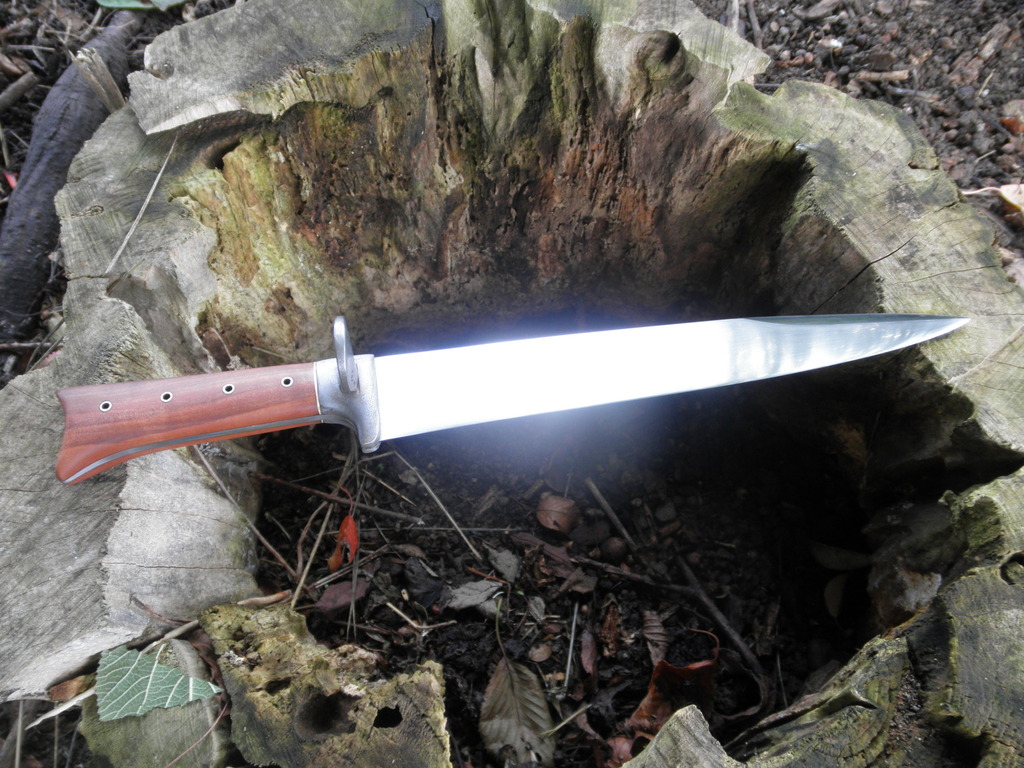
With their stout blades, I feel these pieces are in a sense the late medieval equivalent to the dark-age
seax and maybe the later Bowie knife.
I‘ve been wanting to give these handy little buggers a try, they appeal a lot more to me than earlier period seaxes but offer the same cool combination of being a reliable weapon and a tool.
Stats:
Steel: 80CrV2, heat treated to ca 58-60Rc
Overall length: 37cm (14.5“)
Blade length: 25.5cm (10“)
Blade width: 3.3cm (1.3“)
PoB: 2cm (0.8“)
Weight: 380g (0.8lbs)
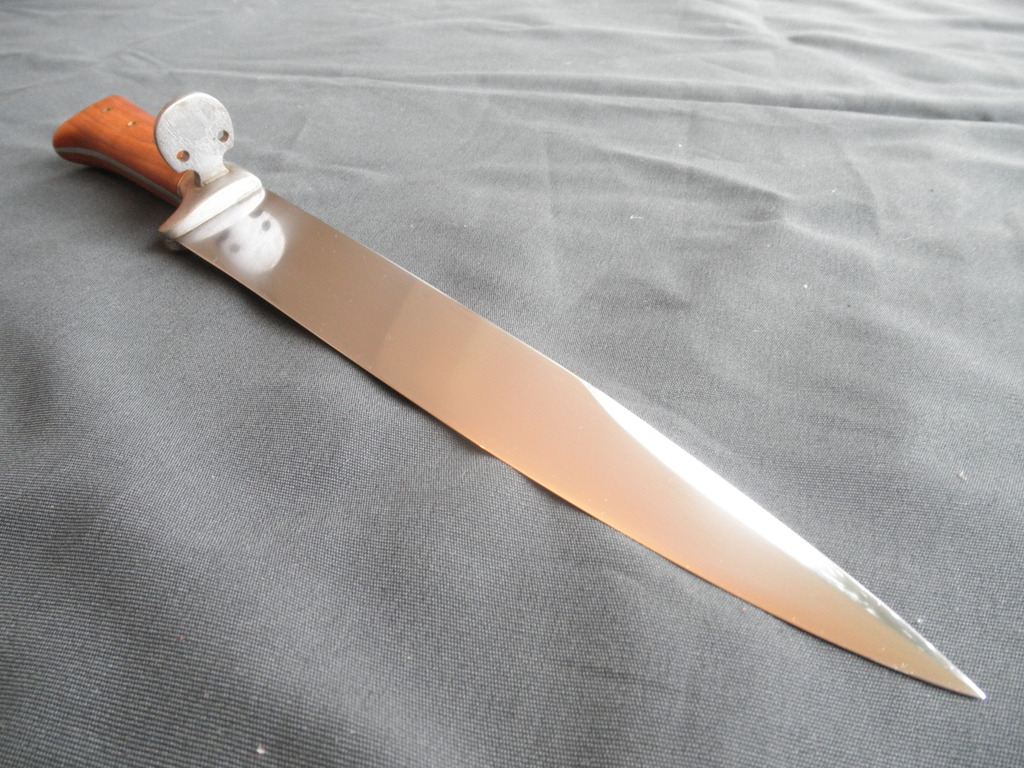
The blade is ground from 6mm stock and retains the full thickness over much of its length, beginning to distally taper shortly before the back edge starts. The tip, though not again swelling to full thickness as on some originals, is kept very stout. The bevel is a full flat grind all the way up to the spine. The edge is of convex shape and seamlessly blended in with the bevel.
The back edge by necessity is of a fairly steep angle but just as hair shaving sharp as the main edge. It greatly aids in penetration and allows for quick back-edge snap cuts that might not cut deeply into a big, heavy target but are absolutely sufficient to maim an opponent‘s hand or face.
Being of short length and considerable thickness, the blade is absolutely rigid. It offers no flex whatsoever. Together with the sharp and stout point, I could easily see it penetrating a thin gambeson or with suitable force maybe even some light mail.
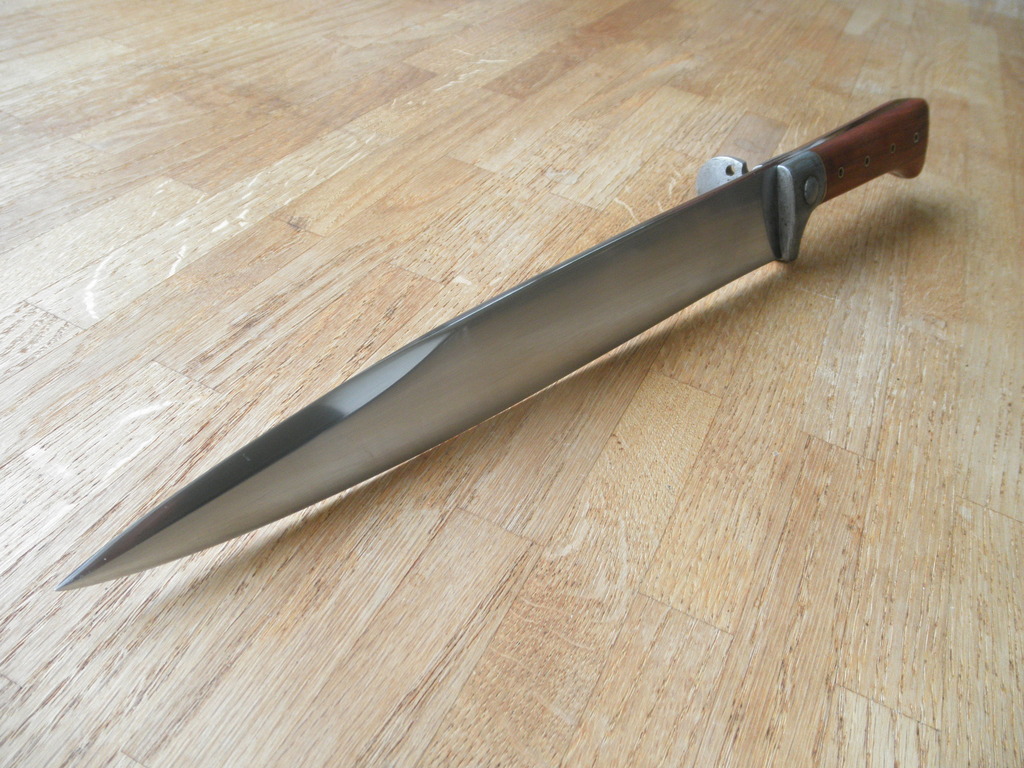
A rather plain blade like this one without anything in the way of fullers, fancy grinds, etc can easily seem a bit boring. So to give the piece some flair I made the bolsters and nagel out of 150+ years old wrought iron. This material can be a bit tricky to work with as it wants to crumble unless forged very hot but files and polishes easily and, when etched, reveals an interesting texture. I must say though that I am bit disappointed in how little the wrought‘s structure is visible in my pics. In person it‘s really quite obvious. I will see if I can borrow a better camera from a friend.
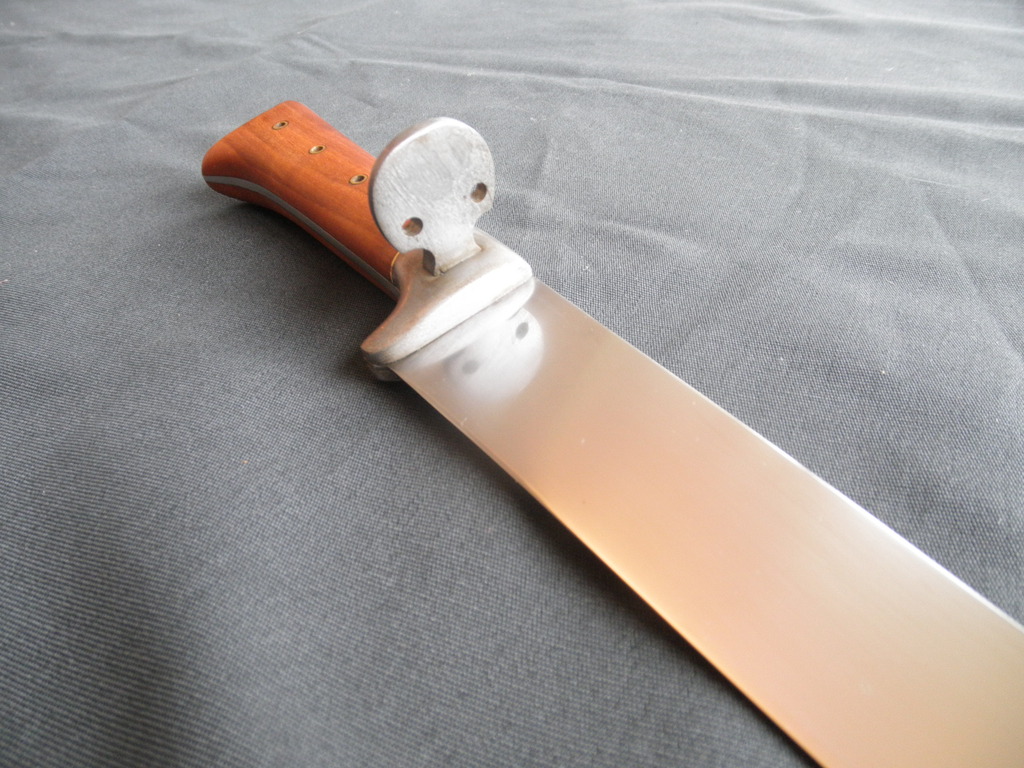
The metal fittings are attached in the historically accurate method of having the Nagel going through the bolsters and the tang to be peened over on the other side. For good measure I did add modern epoxy as well.
For the handle scales I selected pear wood with a nice dark color. The pins are brass tubes, as seen on some originals.
I really like how the smooth and polished blade stands in contrast with the „rustic“ wrought, the warm wood and the light brass.
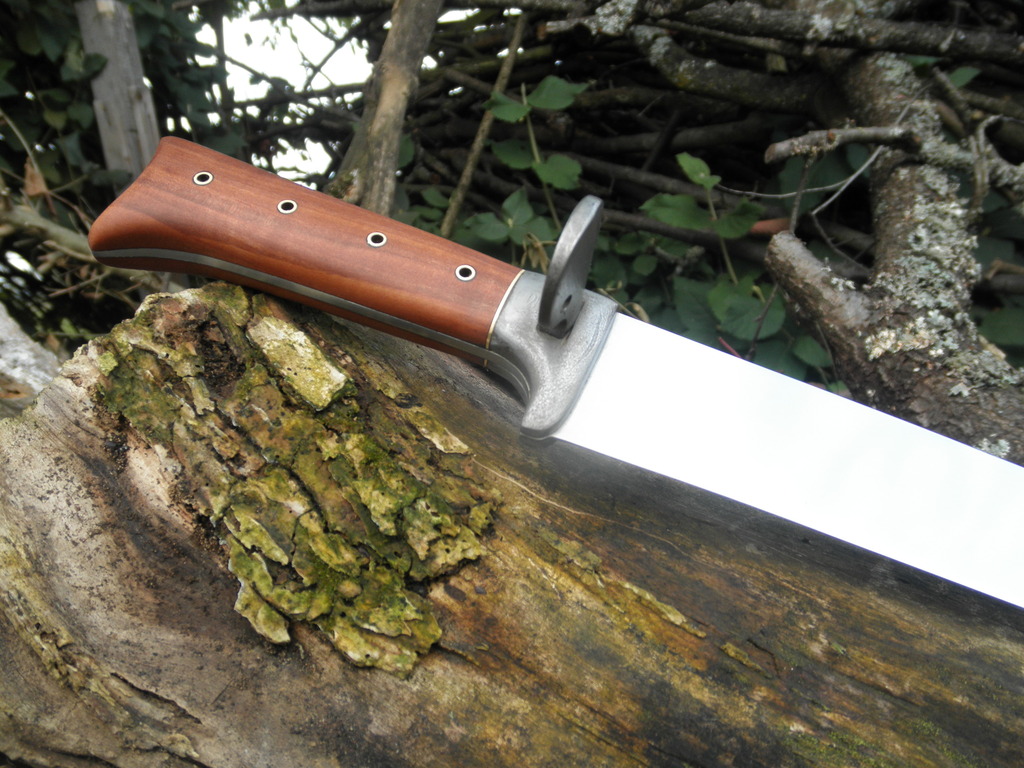
I find this piece immensely satisfying to hold. It has a very pleasant heft to it, conveying a feeling of being utterly reliable. This is a thick blade with convex
distal taper so it really packs a good punch for a blade of the size. At the same time it has enough profile taper to offer a fine point and not appear a mere chopper. The handling mirrors this impression, it feels agile and quick enough with a positive blade presence and deadly point. The blade is just long enough that I‘d start considering parrying/deflecting other blades with it. Here the blade‘s heft would again be a very positive aspect. I made the Nagel fairly substantial, it is easily capable of keeping an opponent‘s blade from sliding down onto the knuckles during blade contact.
While the false edge and overall blade shape indicate a very martial purpose for this blade, it absolutely is a handy tool as well. Cutting down saplings, splitting firewood or other chores, including more delicate ones, can be done with ease and the substantial blade with full tang construction is able to shrug off a lot more abuse than any sword could. This would be a very handy thing to carry around when out in the woods... (or when the apocalypse comes about ;) )
As usual I will later post a cutting video.
Of all the pieces I have made so far, this Rugger is one of my favorites and that is the best thing I can say about it. Very happy with it indeed.
I will soon send the blade out to
www.3wunder.at to have a leather sheath made. I don‘t enjoy leather work myself and also lack many tools required to make a proper two-layered late medieval scabbard so I think this is the right way to go. I‘ll post some pics once the whole package is complete.
Cheers,
Lukas
